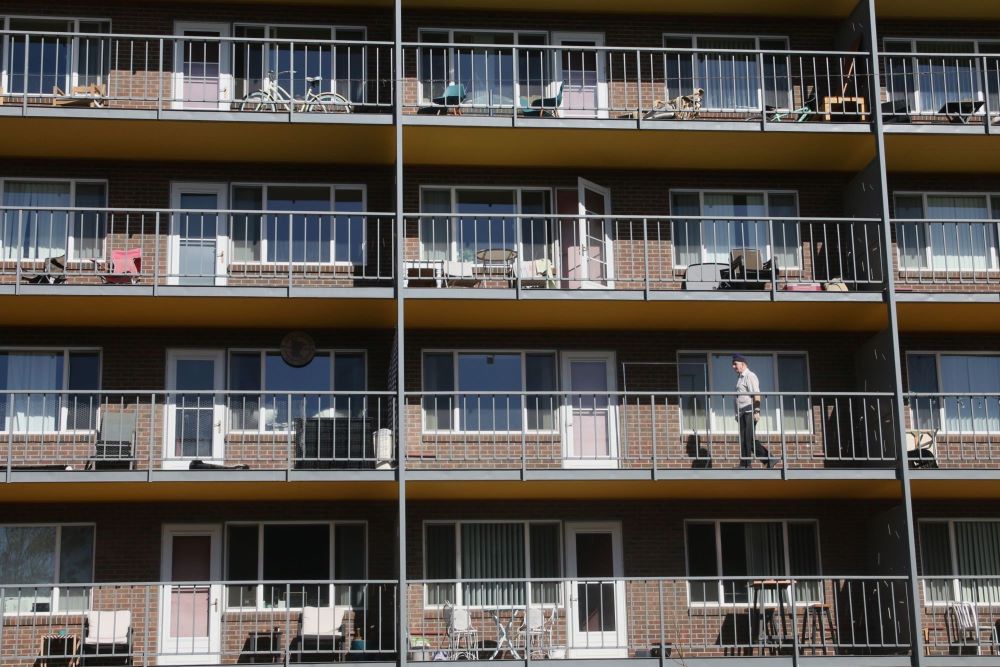State Bill Would Allow Cities to Create Rent Control Policies
32 0
By Eric Heinz
Making its way through the Colorado General Assembly this year is a bill that would repeal the state’s prohibition on municipalities enacting rent-control ordinances.
According to the University of Colorado Law Review, the prohibition on rent-control ordinances dates back to 1980 when the city of Boulder tried to enact its own rules, which caused the General Assembly at the time to put an immediate ban on such policies.
The primary sponsors of the bill, HB-1115, are Rep. Javier Mabrey, D-Denver and Jefferson counties; Rep. Elizabeth Valsco, D-Eagle, Pitkin and Garfield counties; and Sen. Robert Rodriguez, who represents Denver, parts of Jefferson and Arapahoe counties. California, New York, New Jersey, Maine, Maryland and Minnesota are the six states that have cities where rent-control is in effect.
John Paul Marosy, the head of outreach and education coordinator for the Denver Metro Fair Housing Center, said his organization supports forms of rent control in cities where it is needed. Marosy said people of color and Indigenous people have been hit the hardest in recent years by massive rent increases.
“What’s really shocking to me is how many middle-class people are one rental payment away from becoming unhoused,” Marosy said. “Just last week I talked to a professional group, and there was a person in the audience who was really wondering whether she’d have an apartment after February the first because the landlord was raising her monthly rent by $800.”
According to several rent listing websites, the average monthly rent in Denver is just less than $2,000, but that changes from neighborhood to neighborhood.
Cesiah Guadarrama Trejo, the state director of 9to5 Colorado, which co-chairs the Colorado Homes for All coalition, said giving municipalities the tools to create their own rent-control ordinances would make it easier for each to create rules that work individually.
 A bill was recently introduced in the Colorado General Assembly that would allow municipalities to create their own controls on rent increases. The state currently prohibits cities from enacting such policies. Photo by Eric Heinz
A bill was recently introduced in the Colorado General Assembly that would allow municipalities to create their own controls on rent increases. The state currently prohibits cities from enacting such policies. Photo by Eric Heinz
“I strongly believe that the housing crisis is not just a Denver metro area issue,” Guadarrama Trejo said. “We know that rural communities are also facing a housing crisis. We have a lot of workers who have to commute an hour or two hours away if they live in a rural community because they can’t actually afford to live where they’re working, especially in ski towns or tourist towns.”
Although the bill would repeal the prohibition on rent control, it does not specifically outline a proposal of what rent control could look like. Some cities that have enacted rent-control throughout the nation include certain cost-of-living adjustments from year over year to indicate how much rent can go up, while others have structured it by income and size of units.
“Let’s not discount the smarts and wisdom of municipal leaders,” Marosy said. “I think that there are times when, yes, the federal and state governments should guarantee rights, and we don’t have a right to affordable housing in the United States of America yet. Until we have a right for everyone to have an affordable, safe, decent home, we have to certainly empower our local municipalities to do what they need to do.”
Not everyone is on board. Drew Hamrick, the senior vice president of government affairs for the Apartment Association of Metro Denver, said rent control is “a horrible idea.”
“It just doesn’t work with the unintended consequences of investment in additional housing and discourages using housing of existing stock,” Hamrick said. “It also doesn’t get talked about much, but it cuts down on resident mobility. It makes (properties) considerably less valuable, since mobility is one of the things that our customers want from a lease is the ability to move.”
Hamrick said his organization found that rental vacancies in the Denver metro area went up 5.6 percent compared to the last quarter, and rents dropped on average $34 per month, possibly indicating a change in the market.
He said another drawback to rent-control ordinances is that developers often partner with agencies outside the state, and they may not want to invest in Colorado if they can’t be sure what their return on investment will be. Also, Hamrick said if, for example, Denver enacted a rent-control ordinance, it could affect how rents are determined in neighboring cities, which could cause a “bidding war.”
Ever since Denver adopted its “Expanding Affordable Housing” ordinance, Hamrick said applications for multi-family residences have also gone down.
The ordinance requires developers of multi-family properties to set aside a percentage of units as income-restricted or they are required to pay a hefty fine.
The Colorado Landlord Legislative Coalition has already put out materials opposing HB-1115 on its website.
Link to original article